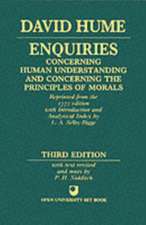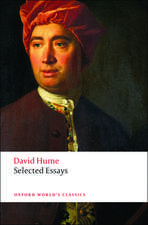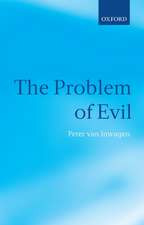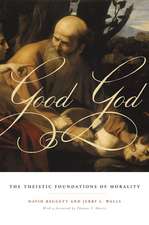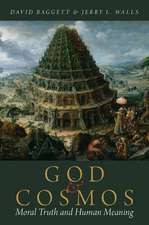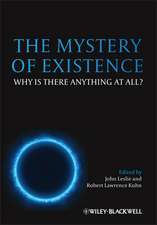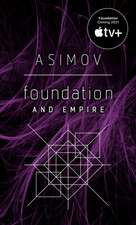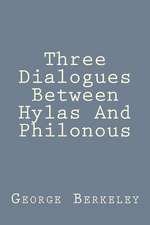An Enquiry concerning Human Understanding: Oxford Philosophical Texts
Autor David Hume Editat de Tom L. Beauchampen Limba Engleză Paperback – 25 mar 1999
| Toate formatele și edițiile | Preț | Express |
|---|---|---|
| Paperback (33) | 40.48 lei 22-36 zile | |
| CREATESPACE – | 40.48 lei 22-36 zile | |
| CreateSpace Independent Publishing Platform – | 47.45 lei 22-36 zile | |
| CREATESPACE – | 47.45 lei 22-36 zile | |
| CreateSpace Independent Publishing Platform – | 49.91 lei 22-36 zile | |
| – | 51.77 lei 22-36 zile | |
| CREATESPACE – | 56.52 lei 22-36 zile | |
| OUP OXFORD – 10 iul 2008 | 58.03 lei 10-16 zile | +20.27 lei 5-11 zile |
| CreateSpace Independent Publishing Platform – | 58.52 lei 22-36 zile | |
| – | 63.58 lei 22-36 zile | |
| – | 69.62 lei 22-36 zile | |
| CREATESPACE – | 73.63 lei 22-36 zile | |
| CREATESPACE – | 78.02 lei 22-36 zile | |
| Hackett Publishing Company – 14 noi 1993 | 79.20 lei 22-36 zile | +5.60 lei 5-11 zile |
| – | 95.78 lei 22-36 zile | |
| CREATESPACE – | 96.57 lei 22-36 zile | |
| BROADVIEW PRESS LTD – 14 iul 2011 | 129.27 lei 22-36 zile | +13.99 lei 5-11 zile |
| OUP OXFORD – 25 mar 1999 | 226.64 lei 10-16 zile | |
| – | 54.65 lei 43-57 zile | |
| A & D Publishing – 31 oct 2008 | 63.68 lei 43-57 zile | |
| – | 69.56 lei 43-57 zile | |
| Lector House – 21 iun 2019 | 72.61 lei 43-57 zile | |
| NuVision Publications – 13 mai 2008 | 73.89 lei 38-44 zile | |
| Sanage Publishing House – 29 oct 2021 | 80.25 lei 43-57 zile | |
| Digireads.com – 31 dec 2005 | 82.39 lei 38-44 zile | |
| Echo Library – 15 ian 2007 | 86.73 lei 38-44 zile | |
| Indoeuropeanpublishing.com – 6 ian 2023 | 90.29 lei 43-57 zile | |
| Bibliotech Press – 28 ian 2014 | 91.65 lei 43-57 zile | |
| Bibliotech Press – 9 iul 2019 | 91.65 lei 43-57 zile | |
| Blurb – oct 2019 | 96.38 lei 43-57 zile | |
| COSIMO CLASSICS – 30 noi 2008 | 108.95 lei 43-57 zile | |
| Simon & Brown – 31 dec 2010 | 115.63 lei 38-44 zile | |
| Open Court – 5 ian 1999 | 144.34 lei 43-57 zile | |
| TREDITION CLASSICS – 31 oct 2011 | 146.49 lei 43-57 zile | |
| Hardback (6) | 133.74 lei 43-57 zile | |
| Hackett Publishing Company – 14 noi 1993 | 216.85 lei 22-36 zile | |
| A & D Publishing – 3 apr 2018 | 133.74 lei 43-57 zile | |
| COSIMO CLASSICS – 30 noi 2008 | 173.59 lei 43-57 zile | |
| Indoeuropeanpublishing.com – 6 ian 2023 | 174.53 lei 43-57 zile | |
| Bibliotech Press – 10 iul 2019 | 182.87 lei 43-57 zile | |
| OUP OXFORD – 26 oct 2000 | 1041.73 lei 31-37 zile |
Preț: 226.64 lei
Nou
Puncte Express: 340
Preț estimativ în valută:
43.38€ • 47.14$ • 36.46£
43.38€ • 47.14$ • 36.46£
Carte disponibilă
Livrare economică 19-25 martie
Preluare comenzi: 021 569.72.76
Specificații
ISBN-13: 9780198752486
ISBN-10: 0198752482
Pagini: 304
Ilustrații: references, glossary, bibliography, index
Dimensiuni: 156 x 234 x 17 mm
Greutate: 0.44 kg
Ediția:Revised
Editura: OUP OXFORD
Colecția OUP Oxford
Seria Oxford Philosophical Texts
Locul publicării:Oxford, United Kingdom
ISBN-10: 0198752482
Pagini: 304
Ilustrații: references, glossary, bibliography, index
Dimensiuni: 156 x 234 x 17 mm
Greutate: 0.44 kg
Ediția:Revised
Editura: OUP OXFORD
Colecția OUP Oxford
Seria Oxford Philosophical Texts
Locul publicării:Oxford, United Kingdom
Recenzii
Tom Beauchamp has produced two excellent editions, which will remain the standard editions of both Enquiries for years to come. An enormous amount of research has gone into this edition. . . Tom Beauchamp [has given] thirty years of devotion to the writings of Hume brought to . . . a splendid conclusion, . . . Beauchamp has attended to "the extreme Accuracy of Style" that Hume demanded and has produced reliable texts of the two enquires, edited to the highest standards.
Notă biografică
David Hume (/hjüm/; born David Home; 7 May 1711 NS (26 April 1711 OS) - 25 August 1776)[9] was a Scottish Enlightenment philosopher, historian, economist, and essayist, who is best known today for his highly influential system of philosophical empiricism, scepticism, and naturalism.[1] Beginning with A Treatise of Human Nature (1739-40), Hume strove to create a naturalistic science of man that examined the psychological basis of human nature. Hume argued against the existence of innate ideas, positing that all human knowledge derives solely from experience. This places him with Francis Bacon, Thomas Hobbes, John Locke, and George Berkeley, as a British Empiricist.[10]
Hume argued that inductive reasoning and belief in causality cannot be justified rationally; instead, they result from custom and mental habit. We never actually perceive that one event causes another, but only experience the "constant conjunction" of events. This problem of induction means that to draw any causal inferences from past experience it is necessary to presuppose that the future will resemble the past, a presupposition which cannot itself be grounded in prior experience.[11]
An opponent of philosophical rationalists, Hume held that passions rather than reason govern human behaviour, famously proclaiming that "Reason is, and ought only to be the slave of the passions".[10] Hume was also a sentimentalist who held that ethics are based on emotion or sentiment rather than abstract moral principle. He maintained an early commitment to naturalistic explanations of moral phenomena, and is usually taken to have first clearly expounded the is-ought problem, or the idea that a statement of fact alone can never give rise to a normative conclusion of what ought to be done.[12]
Hume also denied that humans have an actual conception of the self, positing that we experience only a bundle of sensations, and that the self is nothing more than this bundle of causally-connected perceptions. Hume's compatibilist theory of free will takes causal determinism as fully compatible with human freedom.[13] His views on philosophy of religion, including his rejection of miracles and the argument from design for God's existence, were especially controversial for their time.
Hume influenced utilitarianism, logical positivism, the philosophy of science, early analytic philosophy, cognitive science, theology, and many other fields and thinkers. Immanuel Kant credited Hume as the inspiration who had awakened him from his "dogmatic slumbers".
Textul de pe ultima copertă
Over a series of elegantly written, engaging essays, the Enquiry examines the experiential and psychological sources of meaning and knowledge, the foundations of reasoning about matters that lie beyond the scope of our sensory experience and memory, the nature of belief, and the limitations of our knowledge. The positions Hume takes on these topics have been described as paradigmatically empiricist, sceptical, and naturalist and have been widely influential and even more widely decried.
The introduction to this edition discusses the Enquiry’s origin, evolution, and critical reception, while appendices provide examples of contemporary responses to Hume.















